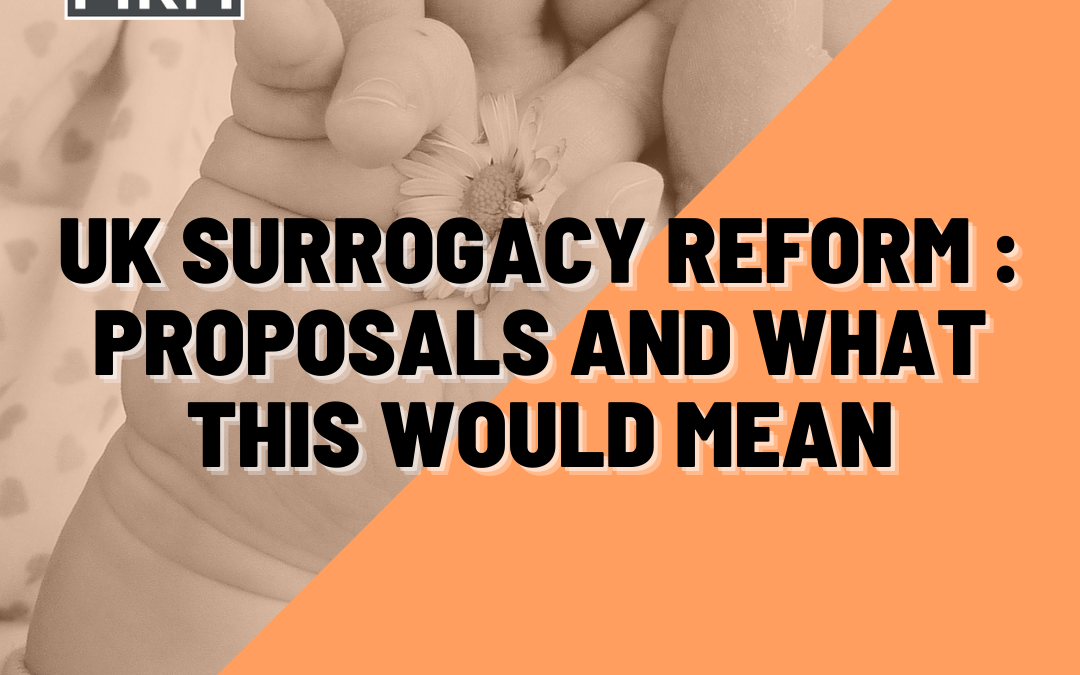Each country has varying rules and regulations when it comes to surrogacy, some more restrictive and some more inclusive. Although a lot has changed over the years to make the process more accessible, UK laws in relation to these arrangements still remain complicated with much room for improvement.
- What is the current state of UK Surrogacy Law
- What are the principal concerns with domestic UK arrangements
- Surrogacy law reform: lessons from the USA and Canada
- Developments in UK Surrogacy Law
- Final Thoughts
Our professional team and I at A City Law Firm have worked with surrogacy cases for over a decade in both the UK and abroad. From surrogates asking for more money to separating parents during the process, trust me when I say we’ve seen it all. But with the current state of Surrogacy Law in the UK being difficult at best, there is hope of real reform on the horizon.
What is the current state of UK Surrogacy Law
At present they are governed by several historical acts of parliament, such as the Surrogacy Arrangements Act 1985, the Human Fertilisation and Embryology Act 2008 (HFEA 2008) and the Adoption and Children Act 2002 (ACA 2002).
Unlike some other countries, our current legislation affords such little protection and certainty to Intended Parents (IP’s) and also the surrogate, which means many UK IP’s prefer undertaking their surrogacy arrangements internationally. However, even upon their return, these IP’s are still required to apply for a parental order and follow UK rules to secure parental responsibility for the child.
What are the principal concerns with domestic UK arrangements
Surrogacy agreements are not legally binding
It presently is a higher risk country as it can’t provide the certainty that most people would like. Surrogacy agreements are not legally binding and a solicitor is not permitted to advise the parties on its terms.
UK IP’s must apply for a parental order
Regardless of where the surrogacy arrangement took place, UK IP’s must apply for a parental order, meaning a court hearing and costs. Many also find this process stressful as they are having to justify their parentage;
Parental rights can only be transferred post-birth.
The surrogate (and her spouse) can only sign the consent form 6 weeks after the birth, which concerns many parents in case minds are changed. Until the parental order has been granted the surrogate remains the legal mother for all legal purposes according to UK law regardless of any contracts or birth certificates from overseas;
No automatic parental rights for medical decisions
The UK IP’s are not automatically both given parental rights for medical decisions or shown on the baby’s birth certificate and able to apply for a UK passport. This means another layer of administration, uncertainty and legal work.
Surrogacy law reform: lessons from the USA and Canada
There are definitely things we can implement and learn from other countries to make the surrogacy process smoother in the UK.
For instance, the USA is often chosen due to its historically proven system that closely vets and screens the surrogates, which means ultimate protection. In some states the contracts are legally binding, helping reduce anxiety for IP’s. Also, because you can have a commercial arrangement there is a larger pool of available surrogates.
In contrast, UK surrogacy is permitted on an altruistic basis while commercial surrogacy is illegal meaning you cannot pay more than reasonable expenses which can limit people’s options.
For those born in Canada or the USA (not all states), the IP’s can be immediately recognised as legal parents on that birth certificate, and can obtain a passport within a three-month period. This affords the peace of mind many IP’s are looking for.
Although, immigration advice and planning are still very much essential, ultimately parental rights are legally secure at this stage, whilst abroad. Making adjustments in line with successful surrogacy policies abroad would be a beneficial move for the UK.
Developments in UK Surrogacy Law
At this present time, surrogacy laws are currently under review by the Law Commission of England and Wales, and it is expected that by the early part of 2022 we shall see further developments.
If passed, some critical changes could include:
- Like other countries it will create a new surrogacy pathway that will allow the IP’s to be the legal parents of the child from the moment of birth.
- Introducing specific regulations for surrogacy arrangements and safeguards such as counselling and independent legal advice. This should reduce the risk of arrangements breaking down.
- Allowing international surrogacy arrangements to be recognised here, on a country-by-country basis.
Final Thoughts on Surrogacy Reform
Undoubtedly the Commission has spent a great deal of time considering the jurisdictions that have streamlined the process, such as Canada and the state of California, USA. There is optimism that in the future we may see some paralleled working patterns between lawyers specialising in this area of law. I hope the introduction of the above proposed changes will pave the way for continued improvements in this area which would be a great win for all parties involved in the surrogacy process.
Contact us now for a no obligation consultation.
Please note this article has been subject to rewrites, view the originally published article on The Independent website on August 9th 2021.

